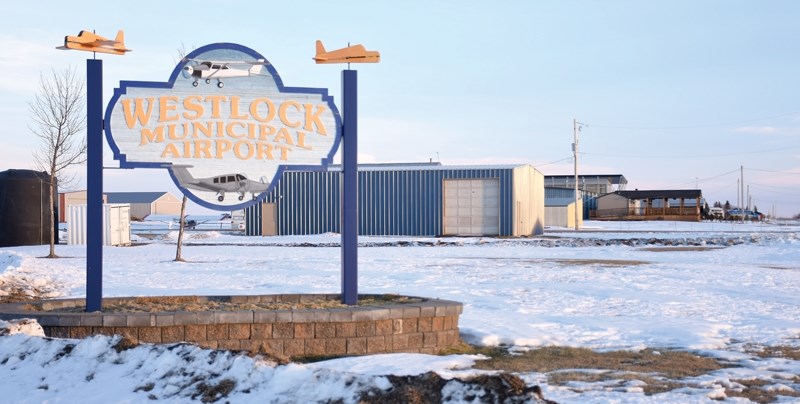Westlock County has extended the deadline of its airport contract with the Town of Westlock to March 31, 2018 to give the new county council time to understand the terms and operations.
The majority of county council voted to extend the contract at its Nov. 28 meeting with Coun. Dennis Primeau opposed to the motion.
“I’m not sure this should be tabled,” Primeau said. “Council needs to go through the TSI report — It has a huge variance on the airport — before any decisions are made and I’m not sure everybody is familiar with the recommendations in the TSI report.”
Transitional Solutions Inc. (TSI) released its regional collaboration report in August with recommendations on how the county, town and Village of Clyde should move forward on the airport, economic development, water and waste and other commonly shared services.
The town and county jointly own the airport but the county oversees the operations of the facility.
As it stands now, property taxes collected from land and buildings at the airport go back into the airport budget, rather than to general revenues.
The TSI report recommended removing that term, charging airport user fees to generate revenue, and creating a longer-term agreement.
County CAO Leo Ludwig explained that after collecting airport municipal taxes, the net operating loss, expenses and revenues are shared 50/50 with the town and county, and without that airport revenue, the net operating loss would also be shared 50/50 with town and county.
“If revenue from municipal property tax goes exclusively to the airport, those ratepayers are not contributing to the other costs of the municipalities,” Ludwig said. “I’m not sure why that was done in the first place. It’s a rather unusual type of funding arrangement. There may have been significant discussion in the past, but it was identified in the report as sort of an out-of-the-ordinary kind of arrangement.”
Coun. Brian Coleman agreed that residential taxes should go back to the general revenue, but had an issue with not reinvesting commercial property taxes from the airport.
“My concern with removing all of the tax from the airport is that it removes all incentives for them to do any develop there, and just depend on two municipal governments for all of the funding. I think that is wrong,” Coleman said. “When we’re looking to create economic growth within the region — and the airport is an opportunity to help economic growth because part of the intermunicipal agreement — I believe the funds from the hangars and from the commercial part of airport should remain with the airport, at least until they do a five-year strategic plan to show us either they’ll be economically viable or not, and then we can make a decision.”
Primeau didn’t expect that to happen and said council needed to be under no illusions that an agreement would come easy.
“The fact of the matter is you’re talking about a 45-year-old incubator here that’s never hatched,” he said. “The last time we had a delegation from the airport was about the time I started on council. They told us it would take two years for the county to be making money. We’re heading into year six.”
The existing airport agreement was set to expire Dec. 31, 2016 but was extended for another 12 months.
Ludwig noted that neither the chair of the airport committee nor its committee members have a called a meeting since he began working for the county since September 2016, coupled with elections in October, he recommended a three-month extension.
“There was no mandate or bylaws for that committee, so as we were working on the committee list we thought it would be best to put that under the mandate of the intermunicipal committee, because it’s an intermunicipal issue,” he said.
Primeau noted that county had gone for lengthy periods of time without a formal agreement.
“If we were to proceed, we should be very careful,” he said. “This is a bear trap and in the past, the county chaired the meetings because we had nobody on the airport committee.”



